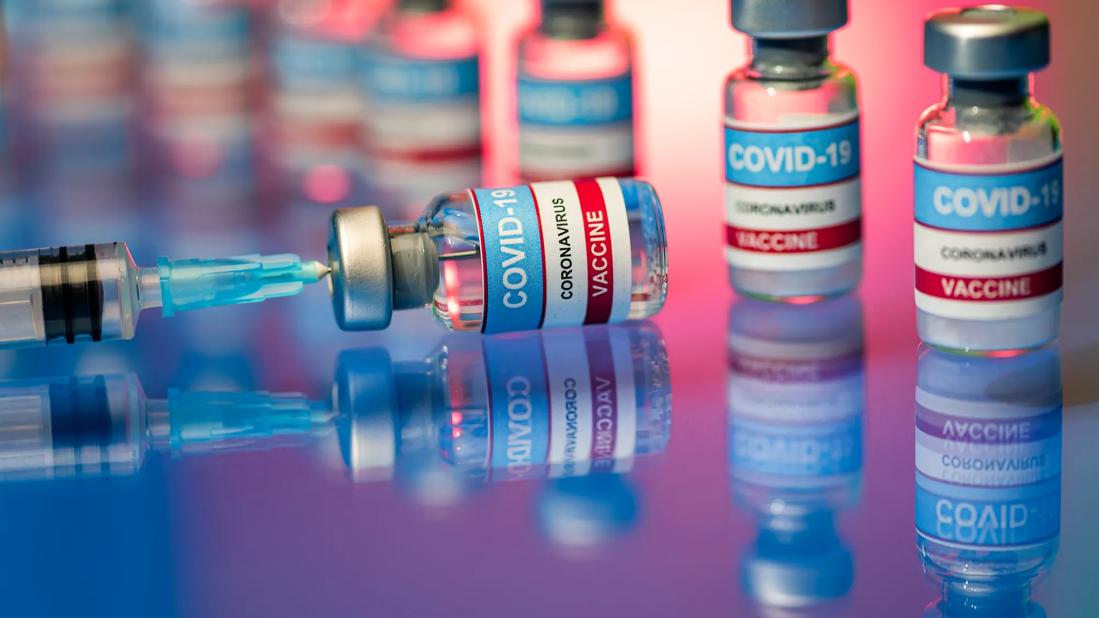Results from the large, single-center, retrospective study have multiple implications for preventive care

People with celiac disease are at increased risk of infections like influenza and pneumonia. At the same time, some vaccines may be less effective in these patients. But what is their risk from COVID-19, and does vaccination offer protection? A new study by Cleveland Clinic scientists provides clarity on these questions. The study was recently published in Clinical Gastroenterology and Hepatology.
Advertisement
Cleveland Clinic is a non-profit academic medical center. Advertising on our site helps support our mission. We do not endorse non-Cleveland Clinic products or services. Policy
In fact, the study showed that celiac does indeed increase risk of hospitalization with COVID-19. However, it also found that vaccination is effective in reducing that risk.
The findings can help physicians who treat people with celiac counsel their patients, and also underscores the important role these providers play in educating celiac patients about vaccines and disease management.
“It has multiple implications in terms of being proactive in preventive care, and introducing vaccines as part of the regular care of the patient during follow-up visits,” says Alberto Rubio-Tapia, MD, a gastroenterologist and Director of the Celiac Disease Program at Cleveland Clinic and coauthor of the study.
The single-center, retrospective study is the first to show that the COVID-19 vaccine mitigates risk for celiac patients. It is also noteworthy because of its large sample size, which included more than 100 celiac patients. This is the only COVID-19 study which involves patients with biopsy-proven celiac disease; other studies of the issue relied on hospital codes, not a positive diagnosis.
In the study, researchers compared outcomes of 110 celiac and 220 non-celiac patients diagnosed with COVID-19 between March 2020 and January 2022. They found that 24% of the celiac patients were hospitalized, a rate more than twice as high as the non-celiac patients who were hospitalized at an 11% rate.
Vaccination was associated with significantly decreased risk of hospitalization. In fact, after vaccination, hospitalization risk for the celiac group was the same as patients without celiac.
Advertisement
“It was really good to know that the vaccines worked well for celiac disease because there are some concerns about the efficacy of some vaccines in people with celiac and other autoimmune diseases,” Dr. Rubio-Tapia said.
The results were surprising, he added, because previous studies had suggested that celiac patients were not at increased risk of hospitalization from COVID-19. He said those differences could potentially be attributed to a less strict inclusion criteria — the use of hospitalization codes to identify patients with celiac — for those studies.
He noted that, because of the study’s timeframe, it did not distinguish between patients who received only the initial vaccination and those who were vaccinated and boosted.
Next, Dr. Rubio-Tapia plans to follow up on the study, investigating questions including the impact of booster shots on COVID hospitalization in celiac patients, differences in COVID variants, and whether treatments like Paxlovid mitigate risk in this population.
“We are also focusing our attention on long COVID,” he said. “We want to try to define how frequent is long COVID in our patients with celiac disease, and whether there are factors that increase the frequency of long COVID.”
Advertisement
Advertisement

Potential for non-invasive methods to transform adult celiac disease diagnoses

Findings reinforce the importance of multidisciplinary care

Study results highlight need for clinician vigilance

Findings hold lessons for future pandemics

Pearls to reduce the strain of RSV, COVID-19 and influenza infections

No effect on symptom severity or disability, and low prevalence of long COVID

Dynamic modeling improves the accuracy of outcome predictions for ICU patients

A review of IDSA and NIH guidelines